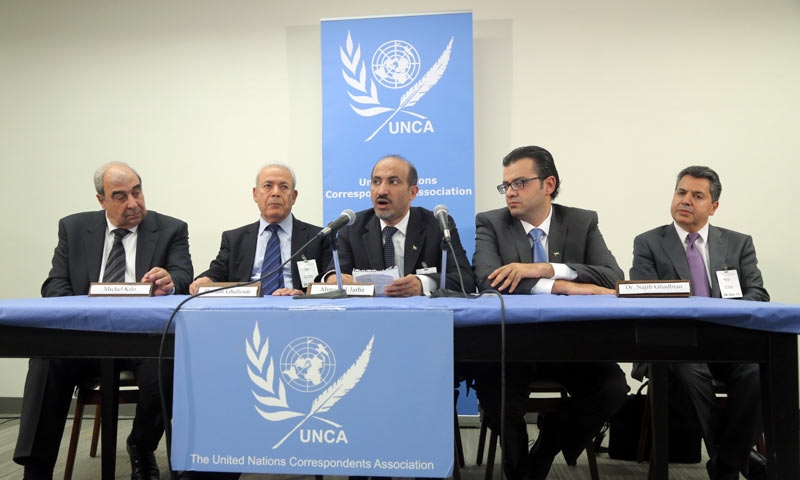UNITED NATIONS: The main Syrian opposition Friday called on the UN Security Council to apply greater “international pressure” on President Bashar al-Assad to halt the country's bitter conflict.
But the first meeting between the Syrian National Coalition and the 15-member Security Council highlighted international divisions over the war, which the UN says has left more than 100,000 dead, and the obstacles to organizing a peace conference.
New coalition president Ahmad Jarba said he told the council: “We need far more international pressure to force the Assad regime to accept a political transition.”
Jarba made no direct appeal for arms, but he added: “I said that as long as the Assad regime is waging war against the Syrian people, the opposition must have the right to self-defense.”
The coalition has been on a tour seeking to put across its political objectives and press for western weapons supplies. Jarba and other top coalition leaders met with French President Francois Hollande in Paris on Wednesday and with US Secretary of State John Kerry in New York on Thursday.
The Security Council held an informal meeting with the coalition, because Russia, Assad's main international backer, said an official meeting would confer recognition on the opposition group, according to diplomats.
Britain's UN ambassador Mark Lyall Grant, whose country organized the meeting, said the opposition had put across a “positive” message opposing extremism and backing democracy in Syria.
There was little sign however of a breakthrough in efforts to organized a follow up to the Syria peace conference held in Geneva last year.
The coalition opposes any role for Assad in a transitional government and insists that it must have full control of the army and security forces.
“I think members of the Security Council will have been encouraged by the commitment shown by the opposition, it remains to be seen whether the regime is equally committed,” Lyall Grant told reporters when asked about the chances of a new conference.
“Clearly there are still some obstacles to be overcome” for a new peace conference, commented Russia's UN envoy Vitaly Churkin who said there should be talks “without pre-conditions.”













































Dear visitor, the comments section is undergoing an overhaul and will return soon.